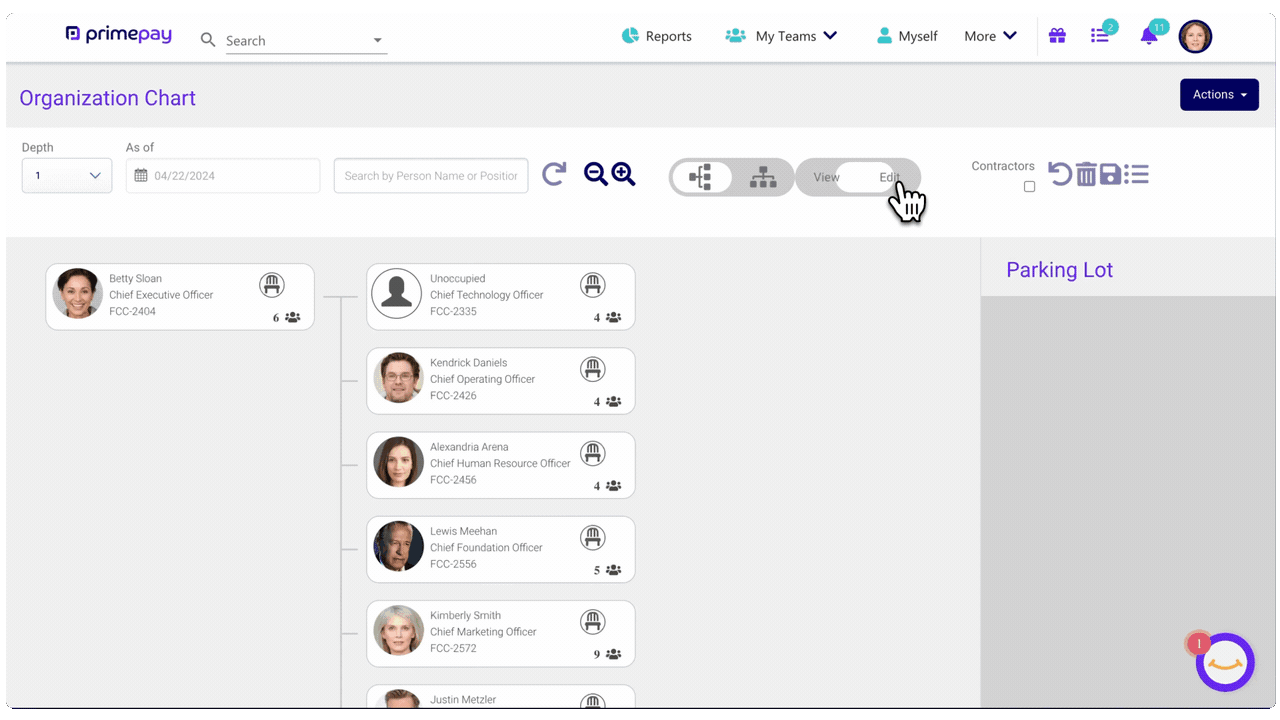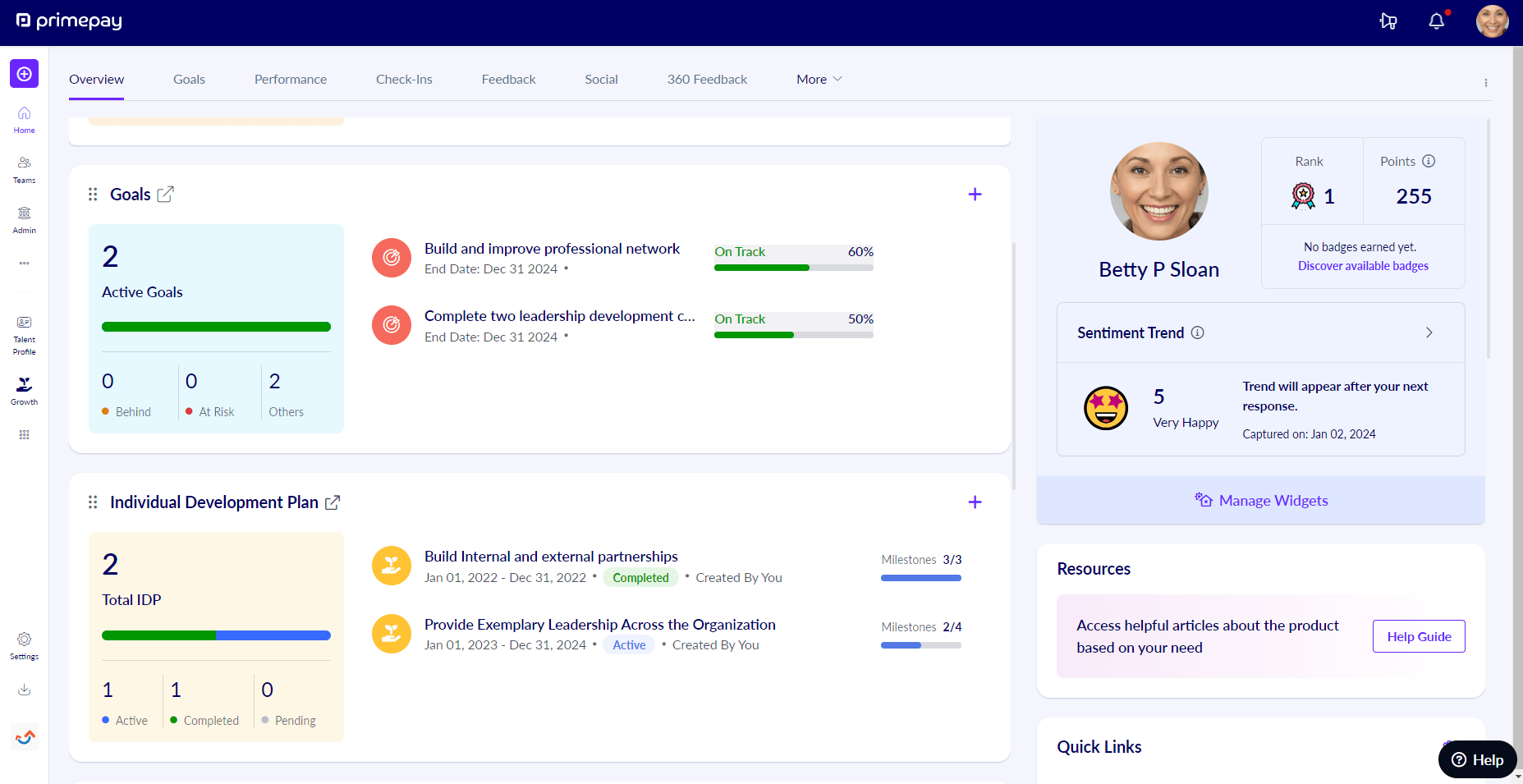Many businesses make the mistake of waiting until a key person leaves to decide who will fill their role. You don’t need a crystal ball to see why this reactive approach isn’t a good one. A lack of planning can lead to rushed decisions, loss of organizational knowledge, and decreased productivity.
Alternatively, when you have a succession plan in place, you’re not only preparing for inevitable changes but also investing in the growth and development of your employees.
In fact, successful companies integrate succession planning into their overall talent management strategy, viewing it as an ongoing process that evolves with the business.
What is Succession Planning?
Succession planning involves identifying and developing potential leaders within your organization to ensure operations continue when vital employees leave or retire.
In other words, succession planning is a long-term strategy for your company, as it creates a pipeline of future leaders who understand your business’s unique culture and operations.
Just think about it: Every sports team has second strings, every play cast has understudies, and, heck, every Survivor contestant has a backup person they want to vote off if an unexpected disruption strikes. If all of these productions take this kind of forethought into consideration, why shouldn’t your business?

A drag-and-drop org chart lets you see how your succession plans impact various teams and reporting structures.
The Importance of Succession Planning
If you still believe succession plans are simply a way to fill vacancies, it’s time to move past that line of thinking. Instead, start considering the importance of succession planning and how it’s a critical component of long-term organizational success.
To jump-start your motivation to write or review your succession plan, here are four ways a well-executed plan can positively impact your organization.
1. Ensures Business Continuity
Succession planning provides business continuity that is crucial for maintaining customer and employee trust and sustaining financial performance.
To ensure uninterrupted business operations, says Joh Hotek, VP of Talent Solutions, you’ll need to create a succession plan and routinely update it so it’s ready to enact at a moment’s notice. His advice comes from experience – Hotek was immediately hospitalized for a medical scare, and quickly realized the ripple effect his absence would have on his company.
He explains: “My experience underscored the importance of not just having a succession plan, but of actively revisiting and making updates. Succession planning is not a one-time task; it’s an ongoing process that requires foresight, communication, and commitment. It’s about preparing your team for the future and ensuring that your organization remains resilient, regardless of what comes its way.”
2. Reduces Risk
As we know, without a clear plan in place, companies risk being caught off guard by unexpected departures and are left to scramble to fill critical positions. But shockingly, only 51% of board directors reported having a written succession plan for the current CEO.
Creating a detailed and solid succession plan minimizes risks, including loss of critical knowledge and skills, and allows your company to quickly and efficiently transition responsibilities to capable individuals.
That “quickly” adverb is key, as a lack of candidate pipeline will drain your company’s wallet. Hiring an executive role takes an average of three to six months, but it can take longer if the position is highly specialized.
3. Promotes Talent Development
Offering professional development isn’t a top priority for many organizations, and that’s an oversight. Many employees seek opportunities to upskill and push themselves at work, but employers are failing to provide courses, learning stipends, and individualized development roadmaps (and no, mandatory compliance training doesn’t count).
In fact, lack of advancement opportunities is the second overall reason (behind low pay) and the top reason for 33% of employees to leave their company.
Luckily, succession planning is a win-win for organizations and employees. For organizations, it allows leaders to determine the specific skills and experiences necessary to take over their role and craft a training plan. For employees, it encourages ongoing training and development they want and builds the skills they need to advance.

Creating specific learning plans for your people helps them upskill and encourages retention within your organization.
4. Improves Investor Confidence
Investors prioritize stability and want to know that your company will continue to thrive, even with changes at the top.
A clear succession plan reduces perceived risks and reassures investors that there’s a roadmap in place, which can prevent sudden drops in stock prices and maintain market confidence.
Specifically, one study reports that companies with the highest-performing stocks all showed signs of good succession practices. Moreover, top-performing companies had planned succession 79% of the time – “an indication that high performers have more robust pipelines of senior executives prepared to fill the CEO position.”
A strong succession plan can also positively influence your company’s valuation and enhance its reputation with partners, clients, and top talent. Investors are likely to place a higher value on companies with a deep bench of talent ready to assume leadership roles, as this suggests long-term stability and growth potential.
Benefit From Your Proactive Plans
It’s clear that succession planning is important and helps ensure your organization’s long-term success and resilience. By preparing for leadership transitions, you safeguard business continuity, enhance employee development, and boost investor confidence.
Ultimately, routinely creating and modifying your strategic succession plans today means you’re securing your company’s future, ready to thrive no matter what challenges lie ahead.



